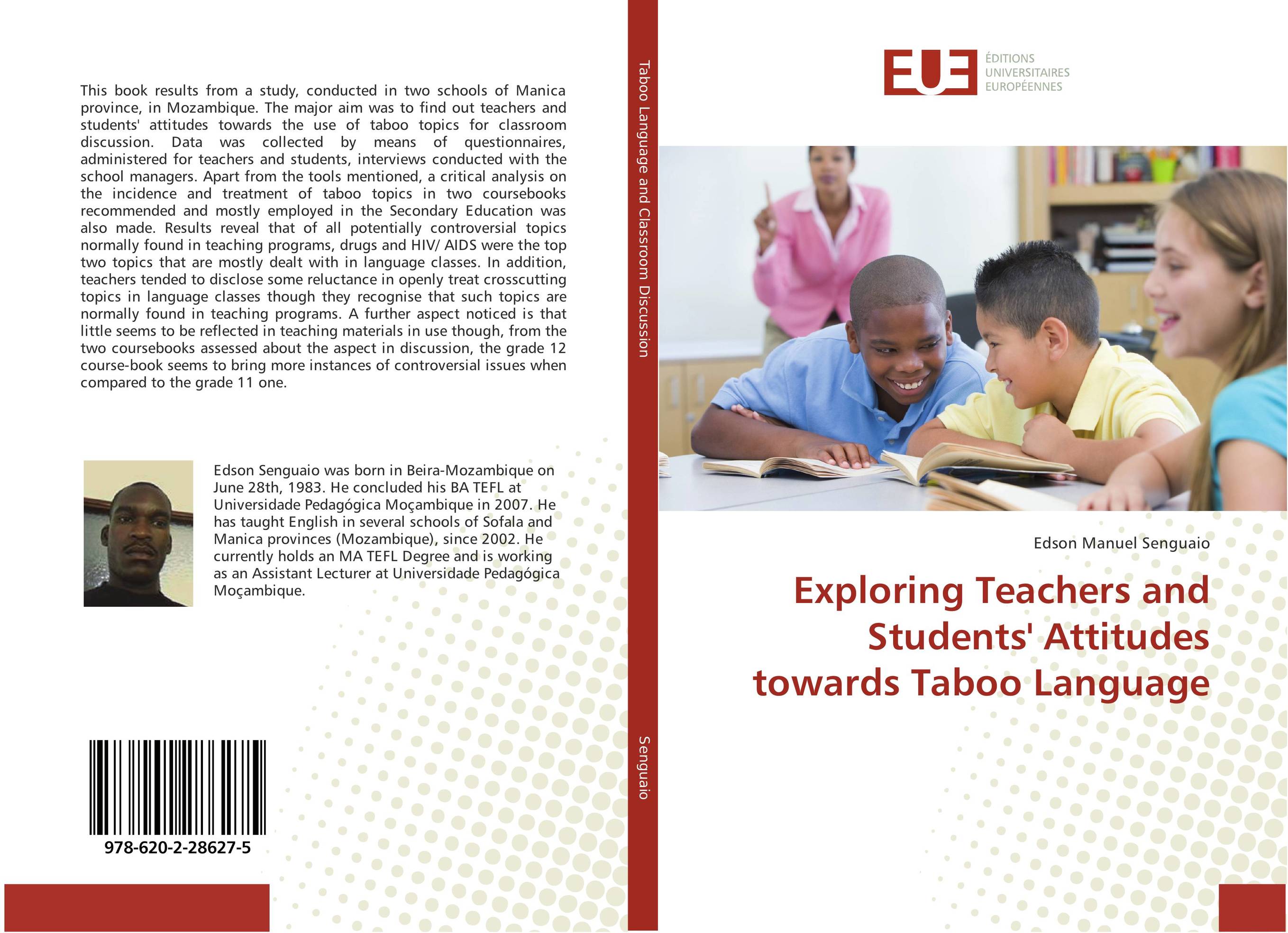| Поиск по каталогу |
|
(строгое соответствие)
|
- Профессиональная
- Научно-популярная
- Художественная
- Публицистика
- Детская
- Искусство
- Хобби, семья, дом
- Спорт
- Путеводители
- Блокноты, тетради, открытки
Exploring Teachers and Students' Attitudes towards Taboo Language.

В наличии
| Местонахождение: Алматы | Состояние экземпляра: новый |

Бумажная
версия
версия
Автор: Edson Manuel Senguaio
ISBN: 9786202286275
Год издания: 2018
Формат книги: 60×90/16 (145×215 мм)
Количество страниц: 124
Издательство: ?ditions universitaires europ?ennes
Цена: 32741 тг
Положить в корзину
| Способы доставки в город Алматы * комплектация (срок до отгрузки) не более 2 рабочих дней |
| Самовывоз из города Алматы (пункты самовывоза партнёра CDEK) |
| Курьерская доставка CDEK из города Москва |
| Доставка Почтой России из города Москва |
Аннотация: This book results from a study, conducted in two schools of Manica province, in Mozambique. The major aim was to find out teachers and students' attitudes towards the use of taboo topics for classroom discussion. Data was collected by means of questionnaires, administered for teachers and students, interviews conducted with the school managers. Apart from the tools mentioned, a critical analysis on the incidence and treatment of taboo topics in two coursebooks recommended and mostly employed in the Secondary Education was also made. Results reveal that of all potentially controversial topics normally found in teaching programs, drugs and HIV/ AIDS were the top two topics that are mostly dealt with in language classes. In addition, teachers tended to disclose some reluctance in openly treat crosscutting topics in language classes though they recognise that such topics are normally found in teaching programs. A further aspect noticed is that little seems to be reflected in teaching materials in use though, from the two coursebooks assessed about the aspect in discussion, the grade 12 course-book seems to bring more instances of controversial issues when compared to the grade 11 one.
Ключевые слова: Taboo Language, Cross-cultural Communication, Interculturality, Euphemism, Communicative Competence



